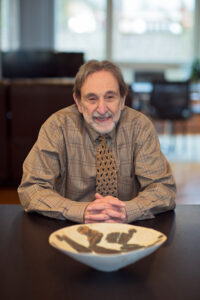FAQ
 Beginning your work with me is an important decision. If your question is not answered here, please contact me.
Beginning your work with me is an important decision. If your question is not answered here, please contact me.
1. You've written a lot about psychoanalysis. What is it?
Psychoanalysis can refer to many things. When I use the word “psychoanalysis” I use it to mean a way of thinking about people. It says, and I do believe, that there is a part of our brain and of our mind about which we are unaware. “How is that possible?” you might ask. That’s a good question and we don’t have a good answer for that other than, “That’s just the way our brains work.” Simply put, a large part of emotional life occurs out of our awareness and is referred to as our unconscious or non-conscious mind. Psychoanalytic thinking assumes that the way we feel, the way we think, and the things we do are not random. They all have good reasons and explanations but, because they are outside our awareness, we are usually in the dark about these important parts of ourselves.
2. If so much is outside our awareness, are we doomed to live and act in the dark?
No, not at all. That’s one of the cool things about individual and couple treatment as well as work with family businesses when it is influenced by psychoanalytic thinking. When a therapist, or family business adviser, is armed with the understanding that much of what motivates people’s feelings, thoughts and behaviors is outside of awareness, then, with proper guidance, it becomes possible to metaphorically “turn the lights on” and see what is actually happening. “Turning on the lights” can be quite illuminating (pun intended) and is far better than living in the dark.
3. You seem to do many things -- treat individuals, see couples, and work with family businesses. How do you do all these different things and how does psychoanalytic thinking help in what you do?
It’s true, I do many things. They are all united by the fact that what I do is all about people. My psychoanalytic way of thinking, as I’ve said, helps me understand people in all the ways that people engage with each other, as well as with themselves
4. I thought that psychoanalysis means lying down on a couch. Is that true?
There is a treatment called psychoanalysis in which people do lie down on a couch. I am familiar with that form of treatment, have used it myself, but now rarely employ it as the only form of treatment in my work.
5. I've heard that psychoanalysis is dead. Is that true?
Some elements of the old psychoanalytic treatment, originated by Freud, have been questioned and are no longer felt to be useful. However, the way of thinking and understanding that Freud gave us, and that I’ve described here, is still alive, smart, and useful.
6. You've mentioned Self Psychology in your CV and in the papers you've written . What exactly is it?
Within psychoanalytic thinking there are many different schools of thought. Your question reflects the confusion that comes when so many different schools of thought are referred to as essentially the same thing, psychoanalysis. Self psychology is one of the schools of thought within the broad category of psychoanalytic thinking. Self psychology pays attention to self-esteem and its ups and downs; childhood emotional development and its relationship to emotional wholeness and/or disruption throughout life; and a set of emotional needs that all people have in childhood and carry through to adulthood.
7. Why should I select you to help my family business?
Family businesses are not only about the business. They are also about the people in the family and how their personalities and longstanding relationships effect the business. My training in psychoanalytic thinking, my many years of experience, and my deep grasp of the very useful ideas within self psychology gives me a unique understanding of the dynamic that occurs between the family members. That understanding enables me to grasp the ways in which their dynamic impacts the business’s functions.
8. You were trained as a physician and psychiatrist. Do you use medication in any of your activities?
I do use medication in my treatment of individuals when, in my assessment, my patient might benefit. I realize, though, that my assessments frequently differ from many of today’s psychiatrists. My understanding of emotional pain considers the social, economic, interpersonal factors, as well as self-esteem and the non-conscious elements of being a person. Many of today’s psychiatrists see emotional pain primarily, and simply, as the result of disturbances in body chemistry. I know it’s more complex than that.
